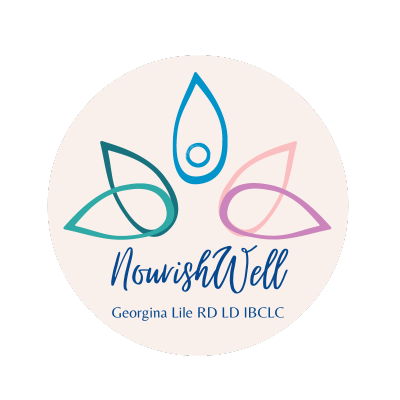Micronutrient Concerns for Athletes
The new school year has begun and that means an increase in activity for our kids that participate in school sports. If you or your child participates in an endurance sport and is training for an hour or more each day, proper nutrition will enhance and improve performance. Rigorous training depletes many nutrients and when they are not replenished, athletes can feel sluggish or heavy and performance is likely to suffer. Daily training depletes minerals, mostly through sweat. If an athlete is not eating an abundance of fruits and vegetables, they are likely not replenishing these nutrients. I have listed below micronutrients that are especially important to athletic performance. Some can be increased with a daily multi-vitamin.
Nutrient Concerns for Athletes
B Vitamins (B6, B12, Thiamin, Riboflavin and Folate)
If you are feeling sluggish during workouts you may be low in B vitamins. The body uses these to convert protein and sugar into energy and to produce red blood cells.
B Vitamin rich foods: Fish, Beef, Pork, Poultry, Eggs, Lentils, Chickpeas
Calcium
Calcium can reduce risk of exercise induced stress fractures. Calcium increases bone density and a strong skeleton is key for high impact activities.
Calcium rich foods: Milk, Cheese, Yogurt, Almond Milk, Almonds, Salmon, Lentils, Chickpeas
Vitamin C
Up to half of people who work out in chilly conditions suffer from some degree of exercise-induced asthma. Vitamin C can reduce coughing, wheezing and shortness of breath during and after exercise. It also decreases the likelihood of active people coming down with the common cold.
Vitamin C rich foods: Cantaloupe, Citrus fruits, Strawberries, Bell peppers, Tomatoes, Potatoes, Lime juice, Sweet Potatoes, Broccoli, Cauliflower
Vitamin D
It’s difficult for anyone to get enough vitamin D from sunshine in the winter. Wearing sunscreen in the summer is necessary but also makes it difficult to take in enough of this nutrient. Vitamin D is essential for the immune system to work properly. It also assists muscle fibers to regenerate energy after they contract so a deficiency can make you feel tired more quickly.
Vitamin D rich foods: Salmon and other fatty fish, Milk, some almond milks are fortified with vitamin D, eggs, 15 minutes sunshine each day before using sunscreen, D3 supplements.
Iron
An hour of working out can deplete 5.7% of your level of this mineral, which helps red blood cells carry oxygen to muscles. Losing too much of your stores can result in iron-deficiency anemia, which causes fatigue and zaps your endurance during lengthy sessions.
Iron rich foods: Beef, Pork, Poultry, Fish, Eggs, Nuts, Beans, Dried Fruit.
Magnesium
This mineral is a powerhouse for athletes. Magnesium is involved in energy metabolism, plus it plays a role in bone formation. Like calcium, it reduces risk of exercise induced stress fractures. You lose magnesium through sweat.
Magnesium rich foods: Leafy Greens, Beans, Avocados, Almonds, Salmon, Halibut, quinoa.
Potassium
Potassium plays a large role in balancing water content throughout the body. It staves off muscle cramps and speeds up recovery. It works with sodium to help your muscles and nerves work properly. It is essential fuel following a workout of any kind. Low potassium will cause you to fatigue faster during endurance exercise and increase risk of muscle cramps. It is not included in a multi-vitamin. Athletes that work out strenuously for at least an hour per day need 4700 mg per day. Most of us can’t this much in without careful planning. See recipe below.
Potassium rich foods: Coconut Water 620mg, Beans 600mg, Potatoes 581mg, Cooked Beets 518mg, Salmon 487mg, Bananas 487mg, Sweet potatoes 440mg, Cantaloupe 427mg, Avocados 354mg, Tomatoes 431mg, Tuna 275mg, Dry Fruit 272mg, NoSalt Sodium Free Salt Alternative
Sodium
Most people are getting plenty of sodium from processed and fast foods, but if you are eating mostly homemade foods and you are an endurance athlete, you need to pay attention to your sodium intake. If you are sweating out sodium and hydrating with water alone, you could experience heat cramps or hyponatremia, a low concentration of sodium in the blood that can be fatal in extreme cases.
High sodium foods: Gatorade, salted nuts, Pretzels, crackers, table salt added to foods, processed foods.
Zinc
Low levels of zinc can lower your muscle oxygen uptake during exercise so that you fatigue more quickly.
Zinc rich foods: Red meat, chickpeas, quinoa, multivitamin.
Antioxidants
Antioxidant or phytochemicals speed up and improve muscle recovery.
Antioxidant rich foods: Deeply colored fruits like blueberries, raspberries and blackberries, plums and beets.
Maintaining your young athlete’s weight and energy levels can be tricky. Most of our kids are not interested in eating 5-7 fruits and vegetables a day. I use the following smoothie recipe to boost my athlete’s potassium, sodium and carbohydrates.
Pineapple Coconut Smoothie
1 (11.1oz) container Kirkland Signature Organic Coconut Water
¾ cup Kirkland Signature Golden Sweet Pineapple Chunks
¼ teaspoon table salt
1 drop Vanilla Extract
Optional: 1 scoop protein powder
Blend until smooth.
Nutrition Facts without protein powder: Contains 121 calories, 30 grams Carbohydrates, 740 mg Potassium, 590 mg Sodium, 200% DV of Vitamin C, 8% DV Calcium, 11% DV Magnesium
Excessive nutrients can be as detrimental as skimping on them, so talk with your doctor or dietitian before reaching for any supplements. A dietitian can do a complete assessment of exercise and food intake to make recommendations that may enhance performance. Most of these nutrients can be obtained by eating a variety of fruits, vegetables and meats everyday and taking a one-a-day multivitamin. It’s a good idea to consult a dietitian to do a complete assessment of exercise and food intake to determine if there are any nutrients missing that might enhance performance.
Read more about fueling the athlete: Feeding the Athlete and Hydrating the Athlete
